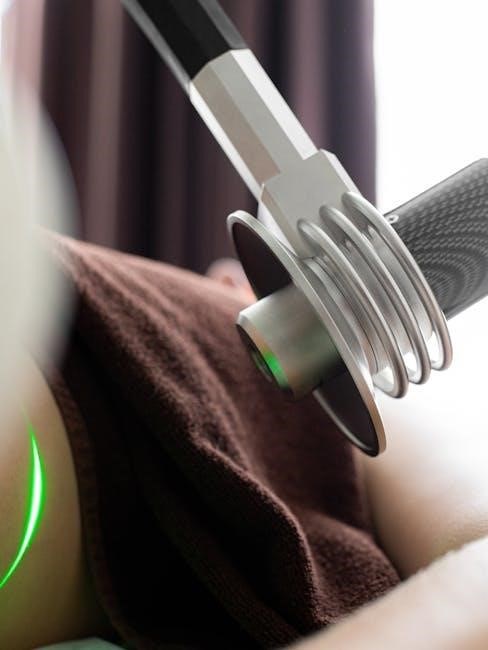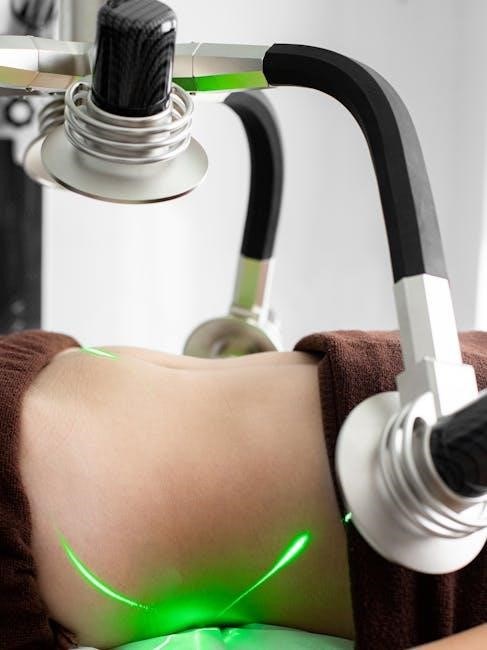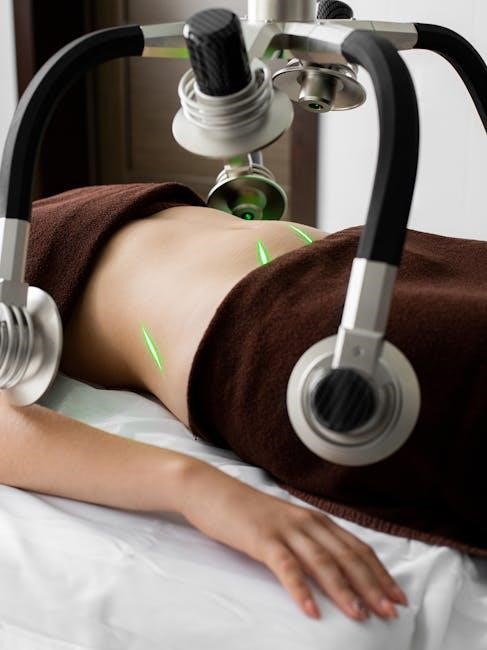Machine learning enhances laser guided machines with
advanced algorithms
and data analysis, improving overall performance and efficiency in various applications, including industrial monitoring and control systems using optical sensors and fiber lasers effectively always.

Overview of Machine Learning in Laser Applications
Machine learning is a key component in laser applications, enabling the development of sophisticated systems that can learn from data and improve performance over time. The use of machine learning algorithms in laser applications has led to significant advancements in fields such as materials processing, spectroscopy, and imaging. With the ability to analyze large datasets and identify patterns, machine learning can optimize laser parameters, predict outcomes, and improve overall efficiency. This has far-reaching implications for industries such as manufacturing, healthcare, and telecommunications, where laser technology plays a critical role. The integration of machine learning with laser technology has also enabled the development of new applications, such as laser-induced breakdown spectroscopy and laser-based material processing. Furthermore, machine learning can help to improve the accuracy and precision of laser-based systems, reducing errors and improving overall performance. By leveraging the power of machine learning, researchers and developers can create more advanced and sophisticated laser systems that can tackle complex challenges and improve our daily lives. Machine learning is being used to enhance laser applications, including industrial monitoring and control systems, and will continue to play a vital role in the development of laser technology.

Applications of Machine Learning in Laser Guided Machines
Machine learning enhances laser guided machines with advanced capabilities and improved performance in various industrial and commercial applications using optical sensors and fiber lasers effectively always with great precision and accuracy always.
Industrial Monitoring and Control
Machine learning plays a crucial role in industrial monitoring and control systems, particularly in laser guided machines, by providing real-time data analysis and predictive maintenance. This enables industries to optimize their processes, reduce downtime, and improve overall efficiency. With the use of optical sensors and fiber lasers, machine learning algorithms can detect anomalies and irregularities in the production process, allowing for prompt corrective actions. The integration of machine learning in industrial monitoring and control systems also enables the implementation of automated quality control, where laser guided machines can inspect and evaluate products in real-time, reducing the need for manual intervention. Furthermore, machine learning can help industries to optimize their energy consumption, reduce waste, and improve product quality, leading to increased productivity and competitiveness. The application of machine learning in industrial monitoring and control systems is a rapidly growing field, with ongoing research and development aimed at improving the accuracy and reliability of these systems. By leveraging the capabilities of machine learning, industries can unlock new opportunities for growth and innovation, driving economic development and advancement.

Machine Learning Techniques for Laser Guided Machines
Machine learning techniques, including neural networks and deep learning, enhance laser guided machines with advanced data analysis and processing capabilities effectively always using optical sensors and fiber lasers in various applications.
Foundational Concepts and Overview
Machine learning is a field of study that gives computers the ability to learn without being explicitly programmed, and it has been increasingly used in laser guided machines to improve their performance and efficiency.
The foundational concepts of machine learning include data preprocessing, feature extraction, and model selection, which are essential for building accurate and reliable models.
A comprehensive overview of machine learning techniques, including supervised, unsupervised, and reinforcement learning, is necessary to understand how they can be applied to laser guided machines.
The use of machine learning in laser guided machines has the potential to revolutionize various industries, including manufacturing, healthcare, and transportation, by enabling real-time monitoring and control of complex systems.
The integration of machine learning with laser technology can also enable the development of new applications, such as autonomous vehicles and smart factories, which can improve productivity and efficiency.
Overall, the foundational concepts and overview of machine learning provide a framework for understanding how this technology can be used to improve the performance and efficiency of laser guided machines, and to enable new applications and innovations.
Machine learning algorithms can be used to analyze data from laser sensors and other sources, and to make predictions and decisions in real-time, which can improve the accuracy and reliability of laser guided machines.
The use of machine learning in laser guided machines requires a deep understanding of the underlying technology and its applications, as well as the ability to develop and implement effective models and algorithms.
By providing a comprehensive overview of the foundational concepts and techniques of machine learning, it is possible to understand how this technology can be used to improve the performance and efficiency of laser guided machines, and to enable new applications and innovations in various industries.

Future Directions for Laser Guided Machine Using Machine Learning
Machine learning will enhance laser guided machines with advanced algorithms and data analysis, improving performance and efficiency in various applications using optical sensors and fiber lasers effectively always with new technologies emerging.
Augmented Reality and Data-Driven Science
The integration of augmented reality and data-driven science in laser guided machines using machine learning is a rapidly growing field, with applications in industrial monitoring and control systems, as well as in the development of new laser technologies.
Machine learning models can be used to analyze data from various sensors and sources, providing valuable insights and improving the overall performance of laser guided machines.
The use of augmented reality can enhance the user experience, providing a more intuitive and interactive interface for operators to interact with the machine.
Data-driven science can help to optimize laser guided machine performance, by analyzing data from various sources and providing recommendations for improvement.
Overall, the combination of augmented reality, data-driven science, and machine learning has the potential to revolutionize the field of laser guided machines, enabling the development of more efficient, effective, and user-friendly systems.
The future of laser guided machines using machine learning looks promising, with many potential applications and opportunities for growth and development, and the use of augmented reality and data-driven science will play a key role in this development.
